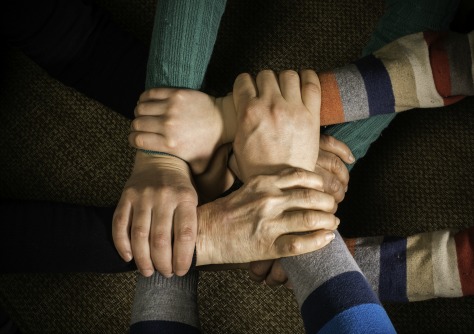I’m back from working on the novel that … well, not to sound too dramatic or anything, but that I’ve spent literally my whole life preparing to write.
Whew! Good thing I’m still alive!
And now that neither of my parents are, who’s to sue? (Har! But terrible joke, of course. Sorry.)
Today we are half-way through what many churches still call Christmastide, which, in the Christian year (for a refresher of which see my Advent, Easter and Ordinary Time: Knowing the Christian Calendar), runs from December 25 to January 5—being the Twelve Nights of Christmas you might recall from the song starring all the birds and extravagant servants. (Speaking of which, don’t forget that there’s still time to enjoy Going to Work Dressed as the Twelve Days of Christmas. Have fun!)
So. I recently read Nobody’s Story, one of Charles Dickens’ ridiculously artful Christmas tales. The nameless protagonist of the story is a good, hard-working man who is barely making it:
He lived in a busy place, and he worked very hard to live. He had no hope of ever being rich enough to live a month without hard work, but he was quite content, God knows, to labor with a cheerful will. He was one of an immense family, all of whose sons and daughters gained their daily bread by daily work, prolonged from their rising up until their lying down at night. Beyond this destiny he had no prospect, and he sought none.
Man. How much does that totally wrap that guy up? Amazing.
Anyway, a plague sweeps through the man’s impoverished community:
The dying and the dead were mingled in the close and tainted houses among which his life was passed. New poison was distilled into the always murky, always sickening air. The robust and the weak, old age and infancy, the father and the mother, all were stricken down alike. What means of flight had he? He remained there, where he was, and saw those who were dearest to him die.
Ugh. Awful.
A kindly preacher seeks to comfort the man by praying for him. But (and this is the key passage here) the man stops him, and says this:
O what avails it, missionary, to come to me, a man condemned to residence in this fetid place, where every sense bestowed upon me for my delight becomes a torment, and where every minute of my numbered days is new mire added to the heap under which I lie oppressed! But, give me my first glimpse of Heaven, through a little of its light and air; give me pure water; help me to be clean; lighten this heavy atmosphere and heavy life, in which our spirits sink, and we become the indifferent and callous creatures you too often see us; gently and kindly take the bodies of those who die among us, out of the small room where we grow to be so familiar with the awful change that even its sanctity is lost to us; and, Teacher, then I will hear—none know better than you, how willingly—of Him whose thoughts were so much with the poor, and who had compassion for all human sorrow.
For a while, those in a position to offer relief to the poor and needy (the “Bigwigs”) much discuss doing so. But, inevitably, “as their fear [of the pestilence] wore off, which it soon began to do, they resumed their falling out among themselves, and did nothing.”
Ugh redux.
The story ends with this donkey kick to the heart:
The story of Nobody is the story of the rank and file of the earth. They bear their share of the battle; they have their part in the victory; they fall; they leave no name but in the mass. The march of the proudest of us, leads to the dusty way by which they go. O! Let us think of them this year at the Christmas fire, and not forget them when it is burnt out.
This year, I want to make sure that I don’t forget the maligned and downtrodden after my Christmas fires have burnt out. This year I want to be sure to make of myself someone who actually, really, and consistently does stuff—who regularly does anything—that helps to ease the burden of at least one person—and hopefully more than one person—upon whom fortune has smiled less munificently than (thank God!) it has upon me.
Doing that is my obligation. It’s my duty. It’s my honor. It’s my privilege.
It’s my shame if I don’t do it.
This year, let me not shirk from what my spirit is forever telling me to do: Love others as I myself wish to be loved.
I’m the author of UNFAIR: Christians and the LGBT Question:
 Paperback. Kindle. NookBook. Signed and inscribed by me according to your direction.
Paperback. Kindle. NookBook. Signed and inscribed by me according to your direction.


















